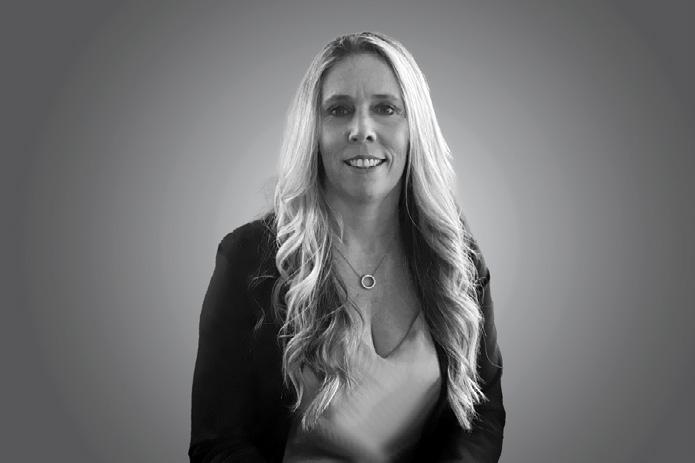Advisers confident despite tough times
annual adviser survey shows what’s keeping mortgage advisers awake at night – and there’s also a big surprise about what they’re not worried about.


annual adviser survey shows what’s keeping mortgage advisers awake at night – and there’s also a big surprise about what they’re not worried about.

If I had to describe the state of the mortgage advice market at the moment, I’d call it challenging. That is clearly borne out by the results of our annual survey.
The gloss has come off; some people have had enough.
But in saying that, there are also many positive things happening.
We are nearing the end of the getready-for-full-licensing timeframe; mortgage advisers are accounting for a significantly bigger share of home loans written to the banks; and it is clear more people want to use your services.
Another positive is NZ Home Loans taking a majority stake in the Link Financial Group (LFG). This deal shows a high level of confidence in third-party distribution, and just as importantly gives the LFG access to a big pool of capital.
After all, NZHL’s parent company has sold most of its assets including KiwiWealth, Hatch and its insurance arm to various parties. Plus, Kiwibank has been moved to a different government entity.
In our lead article this issue, we do a deep dive into how advisers are feelingthrough an analysis of the recent survey.
One of our regular questions is, “What keeps you awake at night?” Regulatory issues and turn-around times for applications always top the list.
This year we added a line about clientdebt servicing levels. Unsurprisingly, this featured highly amongst the top concerns.
It is going to be an issue which continues for some time, as probably at
least half of the borrowers on fixed rates still have a loan which has a sub 4% rate.
There is a lot more pain to come. But it is also the time where advisers can really demonstrate the value they add to clients, therefore locking in the increasing market share for which advisers account.
It is a time of hard work, but also future opportunity.
In the previous issue, I gave a big plug for the annual TMM conference. We then had to make a call, far too close to the event for comfort, to postpone it.
It was a hard call to make, but in hindsight absolutely the right one – for which we got a lot of support.
There were a number of reasons: the key one being the timing was not right. At the moment, it is clear that mortgage advisers are under the pump with changing market conditions, sharply rising interest rates and regulation issues.
We will be back!
The TMM Better Business Conference has been rescheduled to February 28 –and bar some extraordinary circumstances, it will go ahead.
Philip Macalister Publisher


ANZ and Westpac and are seeing good growth in advisergenerated business, but the same cannot be said for BNZ.
All three big banks have recently reported their annual results.
During the financial year, mortgage advisers wrote 56% of ANZ’s loans - up 10% from the previous year.
Overall, advisers account for 47% of ANZ’s home loan book.
At Westpac, mortgage advisers now account for 51% of the home loan book. That's 8.5% growth, from 46.7% to 51%, during the year.
As it’s the total book which indicates adviser flow, the amount advisers originated during the year was well over the 50% mark.
Westpac chief executive Catherine McGrath says the increase in adviser market share was partly driven by CCCFA regulations.


NZ Home Loans has taken a majority stake in the Link Financial Group (LFG), which includes MortgageLink and InsuranceLink. for an undisclosed amount.
Mortgage Link and NZHL are of similar sizes each, writing around $3 billion worth of home loans each year.
NZHL chairman Richard Westlake says LFG is a Kiwi success story and a growth opportunity for the business.
Meanwhile, the news isn’t so positive at BNZ, where advisers account for 30.7% of its $54.8 billion home loan book.
That’s a 2.3% increase on the previous year. However, the flow, or number of loans advisers were responsible for during the 12 months to September 30, actually fell from 34.6% to 34.3%.
ANZ chief executive Antonia Watson said third-party distribution is “a really important channel for us. So we give them lots of love.”
“Our customers choose to go to mortgage advisers and we respect that choice. We want to make sure that we still give our customers, and our partners - effectively, the advisers - a good experience.”
How much advisers can grow their market share is a moot point.
Watson says there are markets around the world where it's much higher than New Zealand.
“Do we want to have every mortgage originated by our brokers? Probably not,” she said.
“We've got some really great staff who do a really good job in talking customers through home loans.”
Watson said the adviser channel was growing for a number of reasons.
“Things have got really complicated for our customers.
“You've got the CCCFA changes; you've got an increasing interest rate environment; you've got Covid shutting down branches.
“So they're looking for someone they can trust, to talk to about something that has become quite complicated.”
He told LFG advisers, "We can give you assurance LFG will stay in New Zealand hands."
Owned by cashed-up Kiwi Group Holdings, NZHL had looked around the market and settled on the deal partly because of the advice technology LFG had developed - and also because it was a good cultural fit.
NZHL chief executive Kip Hanna says the company is “looking forward to utilising the New Zealand technology expertise of LFG – particularly their proprietary advisory software, Advice Link.”
LFG managing director Josh Bronkhorst will remain a shareholder in the business and will continue to run LFG.
"I will be around as long as you will have me and I can keep adding value," says Bronkhorst.
“It’s great to have NZHL on board to help us drive the business forward and maximise future growth.”
Initially NZHL and LFG will be run quite separately, with NZHL input and oversight at board level.
Hanna says although the two businesses have different client propositions, both are committed to helping Kiwis get ahead financially.
“The New Zealand adviser market is growing, as more people want personalised service and guidance around their home loans. So despite broader economic headwinds, we are optimistic about the opportunity this acquisition will bring for both businesses.”
Much has been made of the fact that LFG would stay New Zealand-owned, while some of the other aggregation groups were Australian-owned.



Mortgage Lab founder Rupert Gough has sold the business to Maurice Trapp Group (MTG), which largely specialises in insurance.



Set up in 2017, Mortgage Lab has grown to 25 advisers covering most of the country.
Gough, who is no longer a shareholder, says the business has reached a size where it will benefit from more of a corporate structure.
“As a founder, I want to know that the brand that was built will get even stronger in the future. It’s a huge comfort that a high-quality business like MTG is now taking care of Mortgage Lab.”

Gough says he has known the team at MTG almost a decade.
“I’m excited to see where Maurice Trapp Group will take the business going forward.”
Gough exits as chief executive and continues his role on board at Financial
Advice NZ as an independent mortgage representative.

The incoming Mortgage Lab general manager, Jarrod Kirkland, says the two companies are very well aligned, both geographically and ethically.
“They perfectly complement each other. Together, both companies benefit from this acquisition.” ✚


People who rent their homes are now moving between tenancies less often than in past years.
The proportion of tenants living in a home for less than a year fell to 33.7% in 2018, from 42.5% in 2006, according to Human Rights Commission data.
The New Zealand Property Investors Federation (NZPIF) says this growing stability is good news for investors – and that it is time to introduce a long-term tenancy option for reliable tenants.

NZPIF vice president Peter Lewis says the federation’s proposal is based on the German model, where a landlord would agree not to sell the rental, or, if they did sell, to do so only with the tenant remaining in the property.
“The tenants could still end the tenancy if they need to, and they could also decorate the interior of their rental to suit their own tastes,” says Lewis.
In return, under the NZPIF proposal, owners would be compensated for the
higher risks involved and for giving up some of their current rights.
“For example, in Germany, tenants have to provide up to 12 weeks bond for a new tenancy.”
Long-term German tenants also need to give 12 weeks termination notice instead of the regular four, and may be responsible for the direct payment of property outgoings such council rates and insurance premiums.
The long-term option, which would sit alongside the existing periodic and fixed-term tenancy agreements currently available under the Residential Tenancies Act, is part of the NZPIF’s overall plan to fix the rental crisis and improve the living standards of tenants.
Peter Lewis says the overwhelming majority of the NZPIF’s members invest in rental property for the long term, and that long-term investors invariably seek stable, long-term tenants.
“Despite the popular image, landlords do not remove tenants just because they can. They are well aware that a good tenant is valuable, and also that any vacancy in the tenancy represents a loss of income that can never be recovered.”
Responding to the many tenants who would like more secure accommodation, the Government has tried to provide this by removing the ability of landlords to issue a 90-day termination notice with no stated reason. However, this has only made it harder to remove anti-social tenants who are causing problems for their neighbours and their communities.
The NZPIF’s plan to fix the housing market is based on five core principles: providing stable and better homes; lower costs to enable lower rental prices; more rental properties to meet existing and future demand; facilitating improved access to justice for both tenants and landlords; and creating closer communities.
Image: Peter Lewis
The number of existing property investors saying they are considering buying another property in the coming year has increased.
The figure rose to 29%, from just under 22% in August, according to the latest Tony Alexander/Crockers Investor Insight survey.
The rise is in line with data from other surveys showing more investors are considering expanding their portfolios, and perhaps follows on, to some degree, from evidence of first-home buyers re-entering the market.
Independent economist Tony Alexander says 10% of respondents indicated property-buying intentions - the strongest result on record - but warns against being overly optimistic.
“Because it follows an unusual negative result in August, the jump should be treated with caution.
“It does not signal a big movement of investors back into portfolio expansion given the many negative factors in play. These include tax changes, low prospects for interest rate cuts in the coming year, and difficulties accessing finance.”
For investors looking at buying an existing property, the preference for a standalone house remains strong.
For investors looking at buying a new property, the preferred option is a townhouse followed by a standalone house. The surge in demand for a new apartment over July and August has not been sustained.
In the latest survey there has been a noticeable lift in interest in buying a townhouse, and a fall in demand for a standalone house.
The downward trend in the number of investors who will do a development themselves has re-established itself.
Reports from developers, builders, and buyers indicate problems for many newer operators, including difficulties sourcing materials, finding staff, and making projects profitable amidst soaring costs.
Anecdotal reports suggest a noticeable decline in new projects over the coming one to three years.
The Auckland Property Investors Association wants the Government to immediately restore perpetual-interest deductibility to any landlord who offers long-term tenancy.
In August, the Government announced its intention to restore perpetual interest deductibility to institutional build-to-rent developers. One caveat is that the developed property must be offered to tenants as long-term tenancies of at least 10 years.
But APIA president Kristin Sutherland says it will be years before the buildto-rent sector can add to rental supply
in a material way.
“We recognise that, in time, institutional build-to-rents will be a pivotal chapter to the New Zealand housing story. But these are not projects that can be stood up overnight.”


Most tenants do not live in build-torent properties. And they won’t for several years. But that doesn’t mean security of tenure should have to take a backseat, says Sutherland.
“There are existing rentals on the market right now that the landlord would offer up as long-term tenancies. And they should be appropriately incentivised to do so.”
“It makes little sense to encourage only build-to-rent developers to offer long-term tenancies.
Sutherland says if security of tenure is as critical as the Government says it is, then surely the most effective solution would be to get buy-ins from the entire rental sector – “not just a minority of would-be landlords.”
“We can deliver security of tenure up and down the country right away if perpetual interest deductibility is restored to any landlord who offers tenants fix-term tenancies of at least ten years, in much the same way the Government is asking the build-to-rent developers to do.” ✚
As the regulatory offensive by state agencies on the sector gathers strength, Financial Advice NZ is bracing for reforms on eight separate fronts. It has asked its members, who are, of course, trying to run their businesses at the same time, to come up with ideas.
One of the most controversial elements relates to the proposed regulatory returns for licensed Class 3 Financial Advice Providers (FAPs), along with later proposals for Classes 1 and 2.
Financial Advice NZ chief executive Katrina Shanks has expressed concerns about the significant amount of information requested.

“At this stage we struggle to understand the relevance of some of the information requested and how the detail requested adds additional value when used in the aggregate.”
What the FMA wants to know
Senior FMA manager Romil Ghelan stressed the proposals were not fixed, due to the request for comment by the industry, but he detailed the five types of information the FMA would be seeking:
1 Advisers would have to provide details about their business and infrastructure. This would cover issues such as staffing levels, competency, and the support available to meet compliance obligations.
2 Details about an FAP’s licensed activities, such as how you market and advertise your product.
3 How advisers handle and resolve complaints.
4 Outsourcing – including the arrangements an adviser has to oversee the work of outsourced contractors.
5 Business interruption and cyber security.
Other aspects of the proposed regulatory returns include the fact that they should be filed annually, within the three months before a September 30 deadline.
CoFI fees and the ban on sales incentives
There are other issues out for discussion, starting with the fees which will be
charged for licensing under the Conduct of Financial Institutions (CoFI) legislation.
These fees affect mainly banks, insurers, and non-bank deposit takers - and their licensing regime will be monitored and enforced by the FMA.
It is not clear how much this will affect advisers, since the main rules regarding intermediaries are still being worked out.
Another issue is sales incentives. These were banned by a cabinet decision, which argued they incentivised sales people to take advantage of vulnerable consumers.
A discussion paper put out by the Ministry of Business, Innovation and Employment (MBIE) said sales incentives based on volume or value targets created a strong conflict between the interests of
Financial Advice NZ has asked advisers for assistance, as the sector braces for reform on eight separate fronts.
‘At this stage we struggle to understand the relevance of some of the information requested and how the detail requested adds additional value when used in the aggregate’
Katrina Shanks
consumers and the interest of sales staff.
It gave the example of life-insurance salespeople getting a $1,000 bonus for selling 100 life policies in three months. That would be prohibited, because of the potential for customer abuse.
The ban would also apply to money advances which were not stand-alone payments but part of a total assessment of an employee's job performance based on the “balanced scorecard” approach.
The ban on incentives would further apply to so-called “relevant persons”. This could be agents working for major providers or under contract to them.
The ban would not apply, however, to sales staff getting a 5% commission on each policy they sold. The MBIE document argued percentage payments were “linear”, which meant they did not change according to the volume or value of the sales concluded.
Senior managers and executives may also be excluded from the incentives ban, with MBIE arguing those higher up the ranks were removed from, or at a distance from, the offending transactions.
“It is less common for senior managers and executives (particularly in large organisations) to receive sales incentives based on volume or value targets,” the MBIE paper wrote.
It went on to defend the exclusion of managers in order to make allowance for “reasonable remuneration at more senior levels (which is) less likely to drive strong conflicts of interest at the point of sale.”
“The definition of ‘incentive’… only captures a person who is (directly or indirectly) involved in the provision of the service or the products,” MBIE wrote.
These are complex questions - and staff at Financial Advice NZ have been hard at work preparing answers. To assist them, they have sought a response from
members, to guide them in their formal submission.
Another regulatory issue up for review concerns the proposed guidance and expectations around accounting records.
This consultation seeks input from the industry regarding proposed ways of helping businesses to meet their statutory requirement to keep proper accounting records at all times.
In an explanatory note, the FMA says the Financial Markets Conduct Act 2013, and other acts which require appropriate accounting records, do not provide any further regulations on the content of these records.
It says as accounting requirements have become more complex over time, accounting records no longer comprise just bank statements and invoices, but also documentation which supports accounting considerations, decision making, and conclusions.
It notes there has been an increase in the number of instances with a lack of sufficient records supporting a firm's accounting treatment.
According to the FMA, in some cases there has been a lack of adequate documentation and accounting records to support recorded transactions. It adds there have been issues about the level of disclosure in financial statements – and, in some cases, important material had been gathered together only when the FMA was conducting a review of a particular business.
The proposed changes would require records to be sufficient, supportable and reliable, to be clearly formatted and easy to understand, and to clearly address material issues.
Records would also be expected to reconcile with financial figures and
be protected with systems such as dependable backups.
Another area of regulatory reform concerns those who hold money on behalf of clients - but these are more likely to be people such as lawyers or real estate agents than mortgage advisers. Nevertheless, Financial Advice NZ is seeking comments from its members.
Finally, there is the issue of so-called financial infrastructure.
This has been described as the plumbing of the financial system: the mechanism whereby electronic payments and financial markets transactions are actually completed between parties to a contract.
A draft proposal basically involves tightening up the obligations on market participants, by changing the word 'should' to the word 'must' when referring to compliance standards. The proposal also removes a potential loophole which allowed participants to 'endeavour' to meet requirements.
Other parts of the proposal refer to issues such as cyber security and risk and liquidity management.
These and other requirements are expected to keep Financial Advice NZ and its members busy for months; in many cases, implementation will not occur for months afterwards.

But the organisation is working hard to try to ensure its members will be able to continue working during tight economic conditions with as little disruption as possible.
In a post-CCCFA world - with reforms to that law deemed piecemeal and incomplete - anything to ease the adviser’s burden of paperwork would be welcome. ✚
Average house prices across the country have been plummeting, along with sales numbers – and the freefall looks set to continue.
 BY SALLY LINDSAY
BY SALLY LINDSAY
Average house prices across the country have fallen nearly $113,000 since the beginning of the year, while in Auckland and Wellington the drop is almost $200,000.
QV’s October-quarter House Price Index (HPI) shows the average value of New Zealand homes was $951,040, down from $1,063,765 in January.
The HPI shows the average home dropped in value by 3.9% over the three months to the end of October – an improvement on the 5.4% quarterly reduction at the end of September.
The cities and regions hitting doubledigit home-value declines is growing, with Wellington (-17.6%) headlining a list of main centres which now includes Auckland (-11.7%), Hamilton (-10.5%), Napier (-11.6%), Hastings (-11.5%), Palmerston North (-13.7%) and Dunedin (-10.4%).
Queenstown-Lakes was the only region to buck the trend, with the average value increasing by 2.9% over the quarter.
Across the Auckland region, the average value now sits at $1,348,213, falling 4.4% in the October quarter - a slight improvement on the 5.8% rate of negative home-value growth in the previous three-month period.
All bar one of the Super City’s seven former territorial authorities are now showing negative home-value growth annually, with five out of seven also showing double-digit declines for the year.
This year couldn’t be more different to the last.
At the same time last year, the HPI was showing an average home-value increase of 22.2% throughout the first 10 months; now it’s showing an average decline of 9.7% over the same period.
“I can’t think of two more starkly contrasting consecutive years in my long career as a registered property valuer,” says David Nagel, QV chief operating officer.

Mortgaged property investors have plunged into the new-build market, with the highest number of purchases since 2004.
CoreLogic figures show 32% of new property sales went to mortgaged investors in the third quarter of this year. The average over the past five years has been about 25%.
CoreLogic research head Nick Goodall says the trend is expected to continue. As interest rates rise, the profitability of buying new, as opposed to existing, increases - because the ability to deduct mortgage-interest payments against rental income still applies to new builds.
However, across the overall market — new and existing properties — mortgaged investors activity reached an
all-time low of 20% in September.
“With prospects of capital growth dropping, especially in the short term, combined with increased costs, it’s getting harder for investors to make the finances work for a[nother] investment property,” says Goodall.
“They may well be considering other investment options as interest rates rise; a one-year term deposit now averages 4.1%.”
The country’s biggest bank now expects house prices to fall at least 18% from peak to trough, up 3% from its previous prediction of 15%.
When adjusted for wage inflation, the ANZ’s figures equal a drop of about 27% in real terms – a full unwind of the 202021 bump in real house prices.
The bank says while pinpointing the eventual floor in the market is fraught with uncertainty, it is abundantly clear house prices will continue to fall given the state of the economy.
ANZ analysts say the falling property values can be traced back to the high price of consumer goods driving up domestic inflation.
To stomp on domestic inflation, the ANZ is expecting two consecutive Reserve Bank 75 basis-point hikes to take the OCR to 5% by February.
This means higher mortgage rates will lift at a faster pace than previously thought, and to a slightly higher level – a jump expected to weigh on house prices.
Chief economist Sharon Zollner says while some of the housing landscape has improved over the past few months, ANZ suspects a seasonal element.
“Recent housing data has come in a touch weaker than expected. Green shoots, if there were really any developing, seem to have shrivelled up,” she says.
Auckland’s biggest real estate agency, Barfoot & Thompson, saw October’s sales slump to the worst for 12 years in an October month.
The agency sold just 627 residential properties, compared to 814 properties in October last year and 1,319 in October, 2020.
It was the fifth consecutive month Barfoot & Thompson’s monthly sales have been at a 10-year-plus low.
New listings rose 1,371, up 5.3% above September’s, but were down 31.9% on last year’s October listings.
Buyers will still have plenty of choice, however, as the agency had 4,743 listings at the end of October - the most it has had for five months.
Prices have fluctuated. The agency’s median-sale price for October sat at $1,092,500, consistent with where prices have been at for the past three months.
This was $28,000 higher than September’s median price, but $57,500 lower than in October last year.
While it represents a fall of 14% on the all-time-high residential-median price in November last year, it has now stayed within a 4% range for the past four months.
Auckland’s average weekly rent in Auckland rose by just half a percent during the third quarter of this year, reaching $626.08 at the end of September - up $3.64 on the average at the end of June.
Year-on-year to the of end September, the Auckland average of $626.08 a week is up $20 (3.35%) from last year’s $605.77 for the 16,500 properties managed by Barfoot & Thompson.
Director Kiri Barfoot says the rate of increase is slower than recorded in the previous two quarters.
“However, looking over the past year, the city continues to follow its wellestablished pattern of rents, rising by about 3% annually.”
The differences in price movements across the city are particularly visible in the data.
Rents have been steady in the central suburbs and city fringes, with increases between 0.02 and 2.23%.
The lowest average increase was just 11 cents a week for a central city apartment, for example.
At the same time, rents for homes further to the east and south are increasing around 4% or more. In Franklin and rural Manukau, the year-onyear rent rise reached 6.49%, about $30 more a week on average. ✚
‘I can’t think of two more starkly contrasting consecutive years in my long career as a registered property valuer’
David Nagel, QV
TMM presents the results of its annual survey, revealing what’s keeping mortgage advisers awake at night. There are some surprises among the answers.
BY ERIC FRYKBERGOne of the biggest surprises from this year’s annual TMM survey is the level of buoyancy: mortgage advisers are still pretty confident, despite facing some significant challenges.
The feedback in recent months pointed the other way; things have been hard. Interest rates have shot up to unexpectedly high levels, business volume is down, regulatory issues persist, and there is yet more paperwork.
But some people saw opportunities arising out of the very difficulties the
industry was faced with. And contrary to expectations, the FAP licensing programme is causing very few problems for those who responded to the TMM survey.
There was a distinct degree of optimism about the future of the mortgage industry as a whole.
When asked for advisers’ outlook, the survey offered four options. The top category for describing the future of the industry was “bloody
brilliant”. Eleven percent of respondents agreed with this prognosis, down from 16.22% a year ago.
The next rung down was, “Good, but a few clouds on the horizon”.
It seems many of those who thought it was bloody brilliant a year ago have shifted down to this group, as it made up a large majority of all respondents: increasing from 61% a year ago to 68% this year.
The bottom rung thought the future of the industry was “not too flash”. This was fairly static: 21% a year ago and 20% in the latest survey.
A fourth category was for those who were unsure, but hardly anyone responded this way: just 0.47%.
As they completed the survey, advisers were asked to make comments as well as provide raw material for statistical analysis.
Some of the remarks were quite revealing, particularly regarding the much-criticised degree of Government intervention.
“Due to the current market, and banks' tightening criteria for lending… my income has dropped considerably. Is this going to be sustainable?” one respondent asked.
Another said, “It would be great to apply more common sense to the rules.”
And yet another complained of “increased compliance, lower proposal numbers, harder policy, further cost increases and no increases in commission payments.”
Many advisers said the change to harsher conditions had accelerated over just the past few months – and there were some gloomy predictions.
“Market is crashing, compliance is overkill, so not a great space to be in currently,” declared one respondent.
Another predicted business would be slow for the next one to two years, before the housing market picked up.
“Hopefully [it will happen] after the election, but it could take longer. CCCFA regulations and high testing rates are still a major nightmare.”
To take the pulse of how advisers are feeling, and to identify the pressing issues, we asked, “What keeps you awake at night?”
There were four possible responses to each issue: “keeps me awake”, “is of some concern”, “mildly concerning”, “not an issue”.
A new option this year was whether advisers were worried about clients’ ability to service their mortgages.
While this was not leading to sleepless nights, it was cause for concern for more than half of all advisers.
“Interest rates and the housing market need to come to some equilibrium,” wrote one.

“Affordability at the new test rate of over 8% is the main hindrance currently,” commented another, adding that “average interest rates of 5.5% to 6% is quite a lot of burden on servicing for customers.”
In the weeks since the TMM survey, interest rates have inched still higher.
At the start of November, the median rate for a two-year fixed mortgage was 6.19%, raising the possibility more advisers will have since moved from “some concern” to “sleepless nights.”
Top of the pops almost every year for concerning issues is turnaround times for loan applications.

However, this year, it fell to number six. Is that because turnaround times have markedly improved? Or because other issues have grown in importance? One can but speculate.
Unsurprisingly, the number-one concern this year was regulation: 72% of advisers said regulation either kept them awake at night or was of some concern.
This response gives statistical support to waves of anecdotal comments suggesting mortgage professionals regarded a lot of Government intervention as an albatross around their necks.
New layers of state regulation could easily overlap old, and it all added up to time-consuming and expensive paperwork.
For example, the COFI legislation threatened to duplicate some of the requirements of the FSLAA legislation, before it was partially, but not fully, pared back. Meanwhile the CCCFA drove some advisers to feel like pulling out their hair.
One adviser complained of “low new business due to CCCFA... high clawback, no increased commission.”
Another spoke of “increased compliance, lower proposal numbers, harder policy further cost increases.”
And one hopeful – or ironic – comment suggested the sheer scale of regulation was actually creating opportunities for industry professionals.
The implication behind this remark was that the clutter of new rules was making the whole lending business very hard for laypeople to understand, so they were forced to go to an adviser to make sense of it all.
“Borrowers need advice more than ever because of the minefield being introduced by lenders and the Government,” said one commenter.
Banks were both helping and hindering the advice industry, according to respondents. They were helping because the quality of their own advice was deteriorating, leaving a vacuum which advisers had the ability to fill.
But they were also hindering - requiring many applications to be done online, which could sometimes squeeze out the broker.
“Banks seem to be working against us,” one adviser said. From another: “Banks have all the power,”
“Banks are posting record profits… by raising interest rates at the earliest opportunity,” commented another.
Individual banks have long rebutted these arguments.
Some have said their headline profits are less remarkable when set off as a percentage of the value of their total assets. Others have argued profitability was not a bad thing.
BNZ chief executive Dan Huggins has gone further. He told a recent conference that bank profitability was a good thing.
It was vital for a strong economy, he said, because it provided capital for investment in New Zealand businesses, enabling them to grow.
A bright spot amid the survey results was what did not take the number one spot: the FAP licensing programme.
Preparing for the new adviser regime, which starts in March next year, did not appear to be keeping advisers from the land of nod.
Fewer than 10% of respondents said preparing for full licensing was keeping them awake at night, while only a slightly larger number thought it was of some concern. Around a fifth said FAP was mildly concerning, with more than half saying it was not an issue at all.
The survey results also brought clarity to the future shape of the mortgage advice sector, showing 71% of advisers would work under their dealer group’s FAP.
Only a quarter of advisers were working under their own FAP.
Financial Advice NZ was not surprised to hear the FAP programme emerged largely exonerated in the TMM survey, at least according to the level of sleepless nights.
Financial Advice NZ chief executive Katrina Shanks said the survey reflected the fact the FMA had done “a fantastic job of engaging with advisers, and making the FAP process as simple as it possibly can.”
“I think it is also reflective of the fact that the product providers, and associations like ourselves, have worked hard over the last 18 months to support advisers to get through the process.”
Pleased with this situation, Shanks attributed it to “a collective response, sector-wide, to enable advisers to have the confidence to get a full licence.”
Arguably the most concerning answer in the whole survey, however, was that of those expecting to have a full licence, 27% had yet to apply.
The survey revealed another area in which advisers were cruising along unperturbed: succession planning.
Hardly any advisers were worried about what they would do with their businesses when they retired, or after they switched to another line of work.
Succession planning was mildly concerning to about 30%. But over half said it was not an issue at all.
This appeared to indicate most advisers thought selling their businesses when they move on or retire would work
out fine. And if selling into the market was not the plan, then some other form of succession had been sewn up and was in the bag.
Shanks said this reflected confidence in the industry.
However, Bruce Patten, of Loan Market, warned it was a mistake to be “too blasé” about succession planning.
“No-one has any [succession planning], and there are not people out there available to buy their businesses.
“The industry as a whole is very poor at planning for when they want to get out. They get to the point where they just throw their hands in the air and take what they can get.
“I think there is a lot of work to be done about this, especially in the mortgage side. [If] they want out, and if they can't find a buyer… they will not get a proper return for all the years of work they’ve put into the business.”
One of the key questions in the survey concerned volumes of business carried out by adviser groups - and the news was not good. There was a massive drop in turnover by adviser firms.
Though numbers were not given for actual earnings, only 32.39% of advisers did better business in the year to September, compared with 73.44% who improved their turnover a year earlier.
Looking at this another way, 56.81% said their businesses fared worse in the year to September, compared with 18.75% who experienced declining business a year earlier.
The current economic difficulties showed up in other ways, too. The total
Yes 32%
No 56%
volume of loans shrank for 46.27% of respondents, compared with just 14.74% who experienced a drop last year.
These figures appeared to confirm anecdotal information suggesting that surging interest rates were cooling the housing market, driving buyers away, and diminishing business opportunities for mortgage advisers.
One of the most interesting observations was the makeup of the mortgage advice sector.
Each year our survey shows the majority of advisers are long-time players.
This year, 40.67% of all respondents had been in the profession for 10 years or more, while just 4.78% were new to the industry; 5.74% had been in the advice business for less than two years.
Roughly similar proportions were found in surveys during the previous two years, indicating a broadly constant trend over time.
If this trend were borne out, it would match similar developments in sectors such as education, which are dominated by the over-35s.
However, Shanks believes the mortgage industry has a younger profile than investments, financial planning and life insurance.
“I think mortgage advising is probably one of our younger sectors,” she said. “There is certainly a pipeline of young financial advisers coming through at the moment.
“The regulations have slowed that down as we entered the safe-harbour period of the last 18 months.
“But as we go fully into the new regime, I believe we will see a lot more young people coming through.
“We seem to be becoming more of a profession, and a career, that is going to be sought after.”
The survey gave us a snapshot of what advisers thought about the various lenders, broken down into favourite big bank, small bank and non-bank.
It probably comes as no surprise that the biggest bank in New Zealand, ANZ, was also the most preferred. Details regarding ANZ, Westpac and BNZ are in the news section on page six.
But while ANZ still reigned supreme, it had fallen off its perch a little since last year.
ASB and Westpac were pretty much neck and neck, as had been the case previously, with little separating them.
However, over the years we have asked this question, Westpac has been growing in popularity.
BNZ, however, fared poorly with advisers, winning just 10.50% support, with comments indicating it could be difficult to deal with.
One adviser commented: “BNZ is bottom of the pile for me; as their turnaround times are slow and they are often the best option only for existing clients.”
This opinion was quantified in the bank’s annual results released recently, which showed adviser-generated business at BNZ had gone backwards while its peers had seen good growth.
When it came to comments about the banks, several advisers blamed them for sticking rigidly to the rules of the CCCFA, losing common sense in the process.
According to one adviser, the banks all had different interpretations of the CCCFA, which made dealing with them more complicated than it needed to be.
On the other hand, a number of advisers commented along the lines of this gentleman: “As advisers we should not be promoting just one lender.
“Advice model dictates that application should be made to, 1) client’s preference, and 2) meeting lender criteria.”
| Was the volume of loans settled in the 12 months to September 30 higher than last year?
Not sure 11%
SBS remained the clear winner of the small banks, having held the number-one spot for three consecutive years.
The Co-Operative Bank came second, with 25.97% support, and Kiwibank was third.
As expected, HSBC did not feature, as it did not deal with advisers.
For non-banks, the results were fascinating, as they could be looked at in two ways. When the data was aggregated, and weighted scores calculated, Avanti came out top and AIA second. (Yes, an anomaly is that AIA aka Sovereign is called a non-bank, even though it is pretty much the ASB product).
Resimac came in a solid third, and Bluestone Select followed. The next three, Basecorp, Pepper Money, Liberty and FMT all had broadly-similar weighted scores.
However, advisers were asked to rank the non-banks from 1 to 10, with one being the best.
Here, AIA smashed it with the top score, followed by Avanti; not too far behind was Basecorp.
Basecorp has won huge approval as it raised more funds and developed new product offerings over the past couple of years.
While it remains a fact that the banks dominate the New Zealand lending space, the TMM Annual Survey consistently shows non-banks slowly increasing their market share.
This year, when we asked whether more business would go to non-banks in the next year, 44% said yes; 3.50% said non-bank business would decrease. Around one-third said it would stay the same, and the rest didn’t know.
Nearly three-quarters of respondents (72.64%) gave less than a quarter of their business to non-bank lenders.
Almost half of respondents said they planned to increase the amount of work they would give to non-banks, although this proportion of would-be switchers was less than it was a year ago.
A significant number of advisers planned to keep their level of support for non-banks at a similar level as before.
One of the regular questions we ask mortgage advisers is how much of their books were written with lenders who pay trail commissions as opposed to upfront commission.
This question has arguably taken on more significance as a proportion of advisers have decided to exit the industry, mainly due to increasing regulations.
A mortgage book with a high amount of trail commission will be valued at a higher rate than one which has mainly upfront commissions.
The main argument against trail commissions is that the key consideration when negotiating them is the best interests of the customer, not the best interests of the mortgage business.
It’s interesting: Westpac and BNZ pay trail, as does Kiwibank; ASB does not pay trail, but the AIA product, which is a badged ASB product, does pay trail.
Surprisingly, a tiny group of advisers, 3.27%, said they were paid no trail commission at all.
One reason for this could be that a number of groups are moving their advisers to a salaried model.
For instance, Lifetime uses a salary model, as do others.
The range of lending products being offered by advisers produced varying responses, with signs of some advisers battening down the hatches.
A slight majority, 54.93%, planned to maintain the status quo, while a slight minority, 46.01% said they planned to introduce new product lines.
Asked what sort of lines those might be, advisers found KiwiSaver products to be the most popular, with asset finance in second spot.
Other ideas included budgeting advice and extended business lending.
Some of these ideas were specific to individual companies, and were already in place, such as the 20-year interestonly loan from Resimac and cashflow lending by Prospa.
In summary, the TMM survey for 2022 found that the past year had been tough for many. Turnover was down, volume of loans was down, regulation was proving a headache for the majority, and clients’ ability to service their mortgages emerged as a new and very real concern.
It came as no surprise, of course, to hear advisers were facing some big challenges. But there was hope, too. Many of the results – and the comments - reflected a truly heartening level of optimism.
In total, 84% of advisers thought the future of the advice industry was either “bloody brilliant” or “good, but a few clouds”.
That’s an extraordinarily glass-half-full approach amid extraordinary times. ✚


Mortgage industry professionals are facing an unprecedented change in the makeup of New Zealand's population.
Sector heads are warning advisers to take the demographic developments seriously – and to make thorough changes to their businesses as they go along.
Official data forecasts New Zealand's total population growing relatively slowly over the next two decades, rising from an estimated 5.1 million people currently to 6.2 million in 2048.
But a population expert from the University of Waikato believes the total number is not the main point.
Shefali Pawar, who analyses demography for the Institute for
Population Research at the university, says the composition of that population is what counts.
Addressing the annual conference of Financial Advice New Zealand, Pawar listed some well-known demographic predictions: for example, the South Island getting less than a fifth of the coming population growth, while Auckland will take almost half.
This would put extra strain on Auckland's already-stressed infrastructure, but would bring few problems to mortgage professionals, many of whom have a head office in Auckland, have a large branch there, or gravitate there of their own accord as sole operators.
The age makeup of the future population is a different story entirely,
however, as is its predicted ethnic breakdown.
Financial Advice NZ board member Cecilia Farrow says demographics are going to shape how the mortgage industry treats the long-term needs of consumers.

“From a financial planning perspective, we know people are going to live longer... they are probably not going to be able to stop work at 65; they may have to work until they are 75, or even 80,” she notes.
“What does that mean around the product design we have today?
“What does it mean about how financial planners are giving advice around investment portfolios and projected returns?”
Farrow said these issues are concerning but must be faced.
Shefali Pawar’s presentation focused a lot of attention on declining fertility rates in New Zealand – a trend which would see more old people than children in all 67 territorial authorities by 2038.
Pawar said while Maori fertility was roughly at replacement levels, overall fertility was far below what was needed to sustain the population at current levels.
And while, in theory, immigration was able to plug the gap, it was not dependable because it hovered up and down.
Net immigration was currently headed downward, she said, with both New Zealand-born people and foreign-born permanent residents queueing at the departure lounge.
Some of Pawar's most dramatic numbers showed the population of people aged 65 to 84 growing by 68.5%, and the population aged over 85 growing by a massive 154.3% by 2038.
This would occur as older people stayed put, while younger ones either left, did not immigrate here in the first place, or did not have enough babies to maintain their current numbers.
Multiple reports have described older people depleting their savings within 10 years of retirement, leaving them unable to fund a new home purchase, and in some cases unable to afford to properly maintain their existing home.
In addition, the old adage of trading down has become unviable, because the percentage of small houses, with two bedrooms or fewer, has remained unchanged for 20 years.
This means elderly people with a large, only partially-used family home either can't find a smaller place to trade down to, or discover that the cost of a smaller house has risen close to the level of their existing home, due to a shortage of supply.
Practically the only people rubbing their hands at this forecast are the relatively small number of lending institutions doing some form of Home Equity Release (HER), such as reverse mortgages.
The leading practitioner of HER, Heartland Bank, increased its reverse mortgage portfolio by 20% to $721 million in the year to June.
At the same time, it increased its earnings from this sector by 33%, and sees the future as rosy - with increasing numbers of older people seeking to monetise the capital value of their homes to finance their old age.
But reality could prove more complicated. It is understood the arithmetic of HER could eventually become vulnerable to demographic changes after several years of taking advantage of them.
That’s because if there are too many old people with large homes, and not enough young people with capital able to buy them at the end of the process, then the viability of the whole system could gradually be eroded.
Asked about this risk, Farrow said reverse mortgages may not work dependably in the long run.
“There is just so much to unpack about this problem.”
Another section of Pawar's address concerned New Zealand’s changing ethnic makeup.
as Maori, this creates a potentially escalating problem for the future.
FANZ’s Cecilia Farrow believes financial advisers need to take this matter seriously.
“If I am an adviser in a business where I know that, by 2038, fifty per cent of my business will not be Pakeha, and all my advisers are Pakeha, and I don’t have anyone with any sort of cultural understanding – Te Reo or any of those things – then how am I going to meet those customer needs?
“And where is my customer base going to be? If we’ve got these massive inequalities, can people even afford advice?”
Jodi Hayward, who heads Te Pai Roa Tika, a Maori-led responsible-investment organisation in Northland, says Maori home ownership is low because of intergenerational economic hardship.
While stressing that she is not an expert on the housing or financing industries, she says Maori-owned land could provide an answer if it were treated in the right way.
“Maori do have solutions to home ownership that are not recognised by traditional institutions.
“Whenua Maori –the classification of whenua Maori, and the fact that it is not recognised as an asset you can loan against [is the problem],” she said, referring to the fact some Maori land does not currently attract bank loans because of multiple ownership.
She quoted the 2018 census, which showed 27% of all people in this country were born overseas. Many of these were young - so even though some of them left later, often to Australia, the overall non-Pakeha and non-Maori share of the population was set to rise as a percentage of the whole.
This would change the demographic makeup of the mortgage-seeking population.
Many mortgage companies have recognised this in their choice of staff, employing people with an Asian heritage – such as those from Chinese, Korean or Indian cultures - as advisers or managers.
The situation is different for the Maori population, many of whom have missed out in the race to own a home.
In the 2018 census, Pakeha home ownership rates were 57.9%, while the Maori rate was 31%. With growing numbers of young people identifying
So, was that an issue that banks should get to grips with?
“The bank that does this will be the most innovative, funky bank that we have seen. There’s some really neat leadership having a go at exploring options.
“There are lots of alternative finance models that are resulting in the building of homes on whenua Maori, but they are workarounds to the issue of Maori land not being valued in the way that Pakeha land is.”
Hayward says these problems are not the fault of mortgage advisers, who are often merely a cog in a very long chain. But she says there must be improvements to this process right across the spectrum.
At this stage, progress in these matters is slow, but it appears impossible to find anyone who does not think that something needs to be done ✚
‘If, by 2038, 50% of my business will not be Pākehā, and all my advisers are Pākehā … how am I going to meet those customer needs?’
Cecilia Farrow
In September, koura launched a petition to Parliament asking for change to the KiwiSaver Act. Rupert Carlyon talks about why, what the petition aims to achieve and how to get involved.
The petition – the KiwiSaver Parity Project – asks for change to the KiwiSaver Act, to allow couples to share their KiwiSaver contributions. Why do you believe this is important?
KiwiSaver turned 15 this year, and as the FMA confirmed in their latest KiwiSaver annual report, more and more people are joining the scheme. It’s further proof that it has become a household name – the central pillar of many Kiwis’ retirement plans.
As such an important tool for Kiwis’ retirement savings any flaws or ways that the system can be improved have to be addressed.
The current KiwiSaver system disadvantages the primary carer in the couple for foregoing paid work to have and care for children.
While families come in different shapes and forms, it’s often women who end up
earning less due to family responsibilities and the gender pay gap. And this impact on earnings translates to lower KiwiSaver balances: as Te Ara Ahunga Ora Retirement Commission reported earlier this year, the average KiwiSaver balance for women is 20 per cent lower than for men.1
A voluntary Contribution Sharing Scheme would allow couples (whether married or de facto) to share KiwiSaver contributions to ensure that the person foregoing paid work to have and/or care for children, earning less due to family responsibilities, or earning less due to various pay gaps compared to their fulltime working partner, is not financially disadvantaged in retirement.
party’s consent, a partner would not be able to opt in. And once they’ve opted in, they can opt out at any point in time.
From a KiwiSaver provider perspective, as described here, I believe it wouldn’t be a difficult option to implement, with administration by the IRD. Of course, that is the koura view: we’re reaching out to other KiwiSaver providers to get their thoughts on the proposed change and how it could work.
The proposed Contribution Sharing Scheme would be 100 per cent voluntary: Couples could choose whether they want to split the highest earning partners’ annual contributions, what percentage, and for how long.
Both partners would have to sign a consent form and send it to their KiwiSaver provider: without the other
Yes, KiwiSaver savings are part of matrimonial property and divorce proceedings, meaning the combined savings value would be split in case of separation. But the ability to voluntarily share KiwiSaver is about giving both partners control and confidence over their savings at every step, throughout their retirement savings years.
Fundamentally, it’s about supporting
Delving into the detail, how would the Contribution Sharing Scheme work?
KiwiSaver is a 'property asset' and split evenly across both parties, in the event that a couple separates. Doesn’t this solve the same issue?
equal partnerships rather than waiting for the courts to award money if things dissolve, which takes time.
What's more, this change would provide confidence if one of the parties needs to use their KiwiSaver for a financial hardship claim, for example to leave an abusive relationship. Far too often, people are forced to make decisions they otherwise would not make because they don’t have access to money.
Our goal is March 2025, but this would depend how quickly we can get MP support for the proposed change and then of course how it progresses through the legislative process.
The law change we’re proposing is relatively simple, with potential for
a significant impact on a large sector of the population. It’s our hope that the positive impact a KiwiSaver Contributions Sharing Scheme would have, will be as obvious to the law makers as it is to us.
Right now we’re ‘spreading the word’ and gathering signatures and support for the KiwiSaver Parity Project petition. We’d love advisers who support what we’re doing to get involved - each new signature and share with colleagues, clients, family and friends can help us nudge the petition in the right direction –towards the benches of Parliament.
For more information, FAQs, news, and to sign the petition, we welcome everyone to go to kiwisaverparityproject.co.nz.

Clients can — either with you or in their own time — answer a few questions about risk and objectives, and in five minutes or less, the koura digital advice tool will:
1 Provide a recommendation on the portfolio of koura funds that is best for them, and
2 Provide advice on what their koura KiwiSaver plan will give them and compare their current KiwiSaver fund with their existing fund.
The average KiwiSaver balance for women is 20 percent lower than for men.1
The advice is delivered by the koura digital advice tool and all responsibility and compliance associated with the advice is borne by koura (providing the process has been followed in line with the training provided).

A one-year parental leave break is expected to cost the average KiwiSaver member $5,100 to an individual’s KiwiSaver balance based on a 35-year-old earning $80,000 per year. That can compound up to $16,000 by the time someone reaches the age of 65 and this will grow exponentially over the years taken off or working part-time to care for children.2
The gender pay gap for the June 2022 quarter.3
1. Te Ara Ahunga Ora Retirement Commission.
2. Based on a 35-year-old earning $80,000/ year contributing 3% of their salary investing in a growth fund up until they turn 65.
3. Stats NZ - June 2022 quarter gender pay gap
Creating equality in KiwiSaver. A clear need for change.
Link Financial Group handed out awards to many of its members at its recent conference in Taupo where it announced NZ Home Loans was becoming a major shareholder. The awards were across its two key groups, MortgageLink and InsuranceLink. Also LFG does awards for businesses branded to its groups as well as to advisers who work under their own names. These are called non-branded.

First row | The team from EverBright Finance, who won office of the year- mortgage-non branded


Second row | Song Song – Mortgage Adviser of the year- non branded. | Angela Churchill - Insurance Adviser of the year; non-branded

Third row | Mortgage and Insurance Link Manawatu Rangitikei - office of the year- Insurance: branded (Brian Ferguson, Josh Bronkhorst, Malcolm Frost).
| Mortgage and Insurance Link Otago - office of the year; mortgage-branded (Michael Walters, Amy Cameron, Ben Fleming, Glenda Walters and Bree Taylor-Blair). | Prosperity Finance- office of the year – insurance; non-branded (Jenny Lui, Angela Churchill and Kelly Brough). Peter Lee with Weini Winslow from Generate


End row | Malcolm Frost - Insurance Adviser of the year; branded (Daniel Fifita) | Michael Walters- Mortgage Adviser of the year: branded (Paschael Tawhere)







‘I block out certain times of the day when I know I will have the time to get certain tasks completed... that is the most productive way for me to get my job done.’
William Tieu, 32, won the Financial Advice NZ Rising Star Award – Lending. As he tells Eric Frykberg, his entry into the mortgage business was highly unusual.
BY ERIC FRYKBERGI used to be an engineer doing structural design on bridges, and our company was working at Half Moon Bay in Auckland.
Every day, I would be walking to work along the marina, where there were always nice boats moored.
I thought to myself, ‘I don't know if I will ever own a boat like that working as an engineer’.
Then I noticed a really nice car that was parked nearby, and its number plate matched the writing on one of the banners on a building near the marina.
Once I got back into the office, I googled the name on the banner and sent off an email, saying I was looking for a business mentor.
I didn’t think much of it, because I thought people who own cars like that are usually very busy, but I then got an email in reply, asking me to come in for a chat. So, I did.
I did not even know what this man did for a living when I went in.
His name was Neil Inns and his business was called Professional Financial Group. It was a mortgage broking firm; he took me under his wing, and showed me what to do. That’s how I got into this business.
Initially it was just a bit of support, then I started studying for my Level Five in mortgage advising and insurance. I started working as an adviser after about a year.
It was hard at first, because I had gone from a salaried job to straight commission, so I had no income for quite a while, which definitely hurt.
But then I decided I would just have to go all in. I went hard.
Social media helped a lot. Many people said that social media did not work and that they had to pay for advertising, but I think it depends on how you approach it.
With a service-based industry, you need to provide value for money. A lot of people say, ‘If I am going to spend money,
I want to get an instant return,’ but most people can see right through that.
It’s not just mortgages, it’s the same with any industry: engineering, accountancy or whatever.
And how has your career progressed from then?
I work for Goldsmith Mortgages now.
I did about two years with Professional Financial Group, and then two years with Simply Finance.
I’ve been with Goldsmith Mortgages for three or four months.
Are you pleased you made the jump from engineering?
Yes, I love my job. The best thing about it is helping people get into their first home; that’s very rewarding, especially when a family had always been renting.
When they never thought they would actually live in their own home, because no-one had ever given them that kind of help to do so.
Can you give me an example?
There was a couple with a young child, who never thought they would be able to buy their own home.
They had not really been taught financial literacy or how to be wise with the way they managed their money.
They had a personal loan and they thought they had to pay that off before getting a mortgage.
When I submitted their application, I told the bank, ‘They’re earning a good income; yes, they have a personal loan; yes, they have only got a 10% deposit, but they have the income to service it.’
Once we got that through, they were over the moon.
What is the worst thing about your job?
It is definitely the paperwork, or the administrative stuff, that always bogs you down.
I spend about a quarter of my time on paperwork. But I suppose it’s not too bad, because my company has a really good operation to support us.
One day, one day. Though it was actually more about the car than the boat. It was an Audi R8 Coupe V10.
I haven't got it yet, but hopefully, in about five or 10 years, I will have a car like that.
What is your working day like?
That’s a bit hard to describe, because ever since Covid I’ve been working between our office in Newmarket and my home in Howick.
But when I am working from home, I wake up, get the kids ready, do all my reading about my day, and plan what I will be doing. Then it’s straight into it.
I time-block most of my day. I block out certain times of the day when I know I will have the time to get certain tasks completed and I set that time to do that work.
That is the most productive way for me to get my job done.
What is your favourite pastime?
I played quite a lot of computer games back in the day, so I do some gaming.
I play a bit of golf with colleagues; I do some swimming.
But most of my time is spent with my family.
Do you have a favourite book, or film, or piece of music?
My favourite book is “The One Thing” by Gary Keller.
It essentially says that if you want to achieve anything in life, you should break it down to the simplest task, do that task, and there will be exponential growth.
Don't worry about the end goal, whatever it is; just do one simple task a day, and it will snowball. ✚
In today’s marketing world, you simply must have a strong social media presence. Paul Watkins explains why and how.
BY PAUL WATKINSWe now have an attention span less than that of a goldfish. Recently tested (no idea how): a goldfish has an attention span of eight seconds, whereas for humans it’s only six!
This means, quite simply, that your marketing message must be on-point. It must be short, concise, and very clear in intention. If not, expect to lose out to competitors.
In recent times, the single most annoying, distracting and yet significant game-changer in marketing is the social media platform Tik Tok: annoying in that it consumes a lot of time - and you’ll rarely see anything on it that you consider of any value to your life - but it works.
So why has Tik Tok been a gamechanger? Firstly, the meteoric rise of the platform.
From humble beginnings in 2017, it now has 1.5 billion users and an advertising revenue of NZ$2.8 billion. But its impact extends well beyond the platform.
You will no doubt have noticed similarformat, vertical, short-form videos on Facebook and Instagram.
These are called ‘reels’: Meta’s answer
to the Tik Tok phenomenon (Meta is the company which owns Facebook and Instagram).
YouTube has got in on the act too, with what they call ‘shorts”.
One reason for the massive rise of TikTok is that the short-form vertical video is designed to fit the screen of a cell phone. Eighty per cent of social media and 56% of all Google searches are now made on a phone.
The first lesson here, therefore, is that you must optimise all of your marketing to look good, and to be easily accessed, on a cell phone.
This includes your social media ads, YouTube videos, website, and any videos embedded on your website.
The second lesson for today is to look at making some ‘reels’.
Reels are low production value: literally just hold your cell phone in your face, or put it on a tripod, and talk for up to 30 seconds.
What do you say? You give genuine value to viewers on how mortgages work, what to consider before re-fixing, what interest rates may do in the future, how to prepare your finances for your
first home, how to finance an investment property, and so on.
You won’t run out of ideas. Just think of the questions you are asked every day.
The key is to make reels informative and not look like ads. Give tips, hints, thoughts, ideas, and methods.
Do not sell your services. You need to be seen as a credible expert in your field. This will prompt customers to call you.
Are you comfortable on video? If not, practise, practise, practise.
It may pay to engage a ‘director’: someone to hold the phone and tell you which takes are good. You don’t need a professional video director, just someone who understands social media.
Don’t lapse into jargon, talk too fast or too slow - and edit clips afterwards with text overlays for maximum impact.
You should make a lot of these, 10-20 at a time, and post two a week.
That might sound a lot, but once on a roll you’ll be able to keep going. And you can make 10 variations on a single theme or topic and run them at intervals amongst those on other themes.
Next, load them to Facebook and Instagram and run them as paid ads.
Their impact will be considerably greater than regular-format social media ads.
Allow me to drive home what I’m saying: you simply must have a very strong social media presence.
Social media is still the 90-pound gorilla when it comes to media consumption.
Traditional media such as linear television (programmes running one after the other) is fast being replaced by streaming services such as Netflix and Amazon’s Prime.
Radio is still listened to, but suffers from ‘repetitive blindness’. That is, if you hear the same ad 10 times, you become oblivious to it.
Then there is press, which is now consumed mostly online, through Stuff. co.nz and NZHerald.co.nz, and by a more discerning but smaller audience. Magazines can still have value as they are target-market or theme specific.

If you still see value in any of the traditional media outlets then keep going, but you must add social media to the list.
As I have said many times, social media is not expensive. Ten dollars a day can be a good budget.
But it can be very labour intensive, so be sure you can maintain it through a dedicated team member or, better still, outsource it. Doing so is not expensive.
This leads to another change in the marketplace for which you need a defence strategy.
As we speak, systems for fullyautomated, AI mortgage-adviser practices are being hatched.
These artificial-intelligence ‘advisers’ will be focused on refixing mortgages, given the qualification work to get the first mortgage is already done.
When, not if, AI practices emerge, what can you do against them? There are two answers to this.
First, be seen as human. That’s why videos of your face work so well.
People enjoy seeing whom they will talk to before meeting in real life.
This is why so many people ‘stalk’ others on social media and LinkedIn: to see who they are. I’m sure many of you do this, too.
Second, create doubt in prospects’ minds. If you want more re-fixing clients, then your message should be something like, “The serious mistakes so many make when refixing their mortgages”.
Advertising works by playing on
people’s fears. But be careful to not overstate it.
We are currently in a state of accelerating change when it comes to media consumption and advertising. Specific, on-topic messages are now far more critical than they have ever been. Brand awareness ads - “here I am, pick me” - are a total waste of time.
You must now be very, very specific in terms of who the message is intended for, so it’s far better to run 20 ads aimed at 20 highly specific segments than one aimed at everyone. The latter will no longer work.
Type into YouTube, ‘How to make and post advertising reels to Facebook and Instagram’ to work out how to create these kinds of ads. Then, either make and run a bunch of them or engage a dedicated outsider to do so for you.
Tik Tok, people. Time is short!
Attention spans are shrinking, advertising messages need to be brief, and the world has moved on.
What used to work is what will put you out of business ✚
‘Social media is still the 90-pound gorilla when it comes to media consumption.’
Steve Wright continues his two-part series on trauma insurance, this time looking at how to recommend cover for multiple unrelated trauma conditions.
BY STEVE WRIGHTIn the previous edition of The Mortgage Mag, I suggested we could make trauma-insurance recommendations which were both relatively simple and which made the high levels of cover required affordable.
I wrote that we could do this by separating trauma risk into two or three separate risks, based on financial impact, and then building a traumacover solution to cover those different risks efficiently - avoiding unnecessary premiums caused by over-insurance of lower-severity trauma conditions.
The purpose would be to ensure clients get a big enough claim payment when they need it, at a price they are more likely to afford.
Having enough insurance to cover the financial loss a severe-trauma condition could cause is a ‘depth of cover’ issue.
In this edition of TMM, I’d like to discuss ‘breadth of cover’. By ‘breadth of cover, I mean cover for multiple unrelated trauma conditions.
As I see it, ‘depth of cover’ is the issue of ‘how much trauma cover should
I recommend?’, whereas ‘breadth of cover’ is about ‘how many different unrelated trauma conditions might my client need cover for?’
I don’t think ‘breadth of cover’ makes up for insufficient ‘depth of cover’. Many clients who suffer a trauma condition may never suffer a second unrelated trauma condition - and their first and only trauma condition may be immediately severe.
In other cases, it may be that their existing trauma condition becomes progressively more severe over time.
Either way, clients will need the right amount of cover: the right ‘depth of cover’.
As far as ‘breadth of cover’ goes, what is the client’s risk and therefore need?
What is her likely additional financial loss/risk if she suffers a second, unrelated, trauma condition?
If a client has already received a suitable claim payment for a first trauma condition:
• Does a second unrelated trauma condition create new loss which has
not been covered by the first claim?
If so, what, and how high is that new loss likely to be?
For instance, if a client’s first trauma condition has left him permanently disabled, a second, unrelated, trauma condition which may also cause disability would not create any new loss: he’s already lost his income!
Significant loss of income - for example, that caused by a trauma condition leaving the client unable to work again - is a risk and a need requiring ‘depth of cover’.
• What loss caused by a second unrelated trauma claim is covered under other insurance products?
For example, while it may not cover all private medical costs, Private Medical Cover will pay for a great deal of private medical treatment a trauma condition may require.
• Is the sum insured required for ‘depth of cover’ the same as that required for ‘breadth of cover’?
These are just a few matters to consider; your client’s unique circumstances may throw up more.
Several trauma product options in New Zealand will now pay the trauma-cover sum insured multiple times (offering ‘breadth of cover’).

Sometimes I build this into the product structure; other times it is a trauma cover ‘buy-back’ option.
Either way, there are some things that I think are important for advisers to be alert to, identify, check, and consider. For example:
• How many claims can be made? Some options will allow only one ‘buy-back’ of trauma cover, meaning a maximum of two full payments of the sum insured.
Other options may allow three, four, or five claim payments, or even unlimited options to ‘buy-back’.
• As far as I can tell, while some ‘breadth of cover’ options do cover the same trauma condition previously claimed on (some don’t: some exclude the condition claimed on, along with some related conditions), all options exclude further claims for the same medical condition previously claimed -
in particular, progression or metastasis of cancer.
• In some cases, ‘stand-down’ periods may apply, either to all trauma cover until it is actually ‘bought-back’ (and there is usually a small window of opportunity to buy-back after which the option expires), or to cover for certain trauma conditions depending on the trauma condition previously claimed on.

• If you are recommending accelerated trauma cover, the supporting life-cover reduced as a result will need to be sufficient to support any trauma cover ‘boughtback’.
• What is the premium cost of ‘breadth of cover’? Might it be better to spend that extra premium on more sum insured (‘depth of cover’)?
• How much ‘breadth of cover’ does your client need, and is the premium spend efficient? The same level of cover needed for ‘depth of cover’ may not be needed for ‘breadth of cover’.
You may need to create a solution which allows different ‘depth of cover’ and ‘breadth of cover’ sums insured if unnecessary premium spend is to be avoided.
The need for ‘breadth of cover’ may be partly dependent on factors such as age, income levels and net wealth, along with other insurance products held, such as private medical insurance and income protection, which may pick up some of the additional costs a second unrelated trauma condition may bring.
Finding the right combination of trauma cover in the right amounts to efficiently protect against both lower-severity trauma conditions and the most severe trauma, as well as covering multiple unrelated trauma conditions, requires advisers to understand the various trauma-cover options and products very well.
But this level of understanding is what makes you and your advice invaluable to clients. ✚
Steve Wright is the general manager product at Partners Life.
‘
Depth of cover is the issue of ‘how much trauma cover should I recommend?’, whereas breadth of cover is about “how many different unrelated trauma conditions might my client need cover for?”’
A lot has happened in the market since the last edition of the magazine. Here are the most-read industry stories from tmmonline.
tmmonline.nz
The Credit Contracts and Consumer Finance Act (CCCFA) has come in for a sound drubbing from the former Prime Minister, Sir John Key.
A new chief executive has been appointed to run dealer group SHARE and Newpark. 03
OWNER
NZ Home Loans has taken a majority stake in the Link Financial Group which includes MortgageLink and InsuranceLink.
MortgageLink teams up with a non-bank lender to offer a white label home loan product. 07

A reasonably new and evolving mortgage adviser group has sold to an established player citing regulatory issues. 08 CLARK
The Minister of Commerce and Consumer Affairs has mounted a strong defence of the Credit Contracts and Consumer Finance Act (CCCFA) but he won little traction from his audience.
Everyone acknowledges mortgage advisers are having to do more administration work in running their business, but the chances of a pay rise appear pretty much non-existent.
Some mortgage holders face rapid exposure to rising interest rates but many others still have a period of grace before having to face the music, a conference has heard.
To keep up with all the news make sure you check www.tmmonline.nz regularly. Or you can get the news and rates update sent to you each day.
Prospa's New Zealand team swells to 12 with the addition of a new business development manager. 10 HOUSEHOLDS
Homeowners nervously awaiting the coming interest rate tsunami will end up fighting inflation on behalf of the rest of New Zealand.
Sign up to the TMM email newsletter.






















